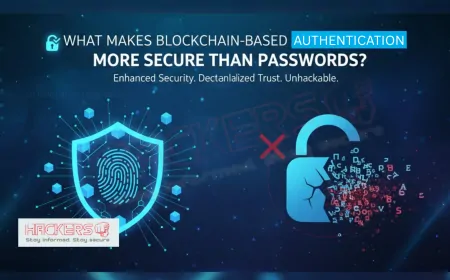Why Do Cybersecurity Employers Prefer Candidates With RHCE Certification?
Imagine a world where cyberattacks hit every few seconds, from sneaky phishing emails to ransomware locking up critical systems. In 2025, this is reality, and cybersecurity professionals are the frontline defenders. Among the credentials that make you stand out to employers, the Red Hat Certified Engineer (RHCE) shines brightly. Built on the foundation of the Red Hat Certified System Administrator (RHCSA), RHCE equips you with advanced Linux skills to secure servers, automate defenses, and manage complex networks. Linux powers most of the world’s servers and clouds, making RHCE a gold standard for cybersecurity roles. In this blog, we’ll explore why employers in cybersecurity prefer RHCE-certified candidates, using simple language to guide beginners and IT pros alike. Ready to see why RHCE is your ticket to a thriving career? Let’s dive in!

Table of Contents
- What is RHCE?
- Why Linux is Critical in Cybersecurity
- RHCE’s Key Security Skills
- Why Employers Prefer RHCE
- RHCE vs. Other Cybersecurity Certifications
- Industry Applications of RHCE Skills
- Career Benefits of RHCE
- Why Choose Webasha for the Course
- Conclusion
- FAQs
What is RHCE?
The Red Hat Certified Engineer (RHCE) is an advanced certification from Red Hat, a leading name in open-source software. It builds on the Red Hat Certified System Administrator (RHCSA), which covers basic Linux administration, and dives into complex skills like automation, networking, and security. Linux is an open-source operating system, customizable and robust, powering most servers and cloud platforms like AWS.
RHCE, tested through the EX294 exam, is hands-on. You perform real tasks—like securing services or automating configurations—on a live Red Hat Enterprise Linux (RHEL) system. It requires RHCSA or equivalent experience, making it ideal for IT pros ready for enterprise challenges. For a detailed guide, check this RHCE exam guide from Webasha.
In cybersecurity, RHCE stands out for its focus on securing Linux systems, which are critical to modern IT infrastructure. The certification, valid for three years, ensures you’re equipped to handle today’s cyber threats.
Why Linux is Critical in Cybersecurity
Linux dominates IT, running over 70% of web servers, most cloud platforms, and even security tools like Kali Linux. Its flexibility, reliability, and open-source nature make it a favorite for critical systems, but also a prime target for hackers. A single misconfiguration—like an open port or weak credentials—can lead to devastating breaches.
In 2025, cyber threats are relentless. Ransomware locks data, phishing scams steal credentials, and insider threats exploit access. Linux’s role in cloud computing, finance, and tech means employers need pros who can secure these systems. RHCE provides advanced skills to protect, monitor, and respond to threats, making certified candidates highly desirable.
RHCE’s Key Security Skills
RHCE equips you with advanced Linux skills that employers value in cybersecurity:
- Ansible Automation: Automate security tasks, like deploying firewall rules or SELinux policies, across thousands of servers for consistency and speed.
- Advanced SELinux: Customize Security-Enhanced Linux policies with
semanageto restrict processes, preventing exploits like privilege escalation. - Complex Firewalls: Configure
firewalldoriptablesfor precise traffic control, blocking unauthorized access (e.g.,firewall-cmd --add-service=https). - Secure Service Configuration: Harden services like Apache or SSH with TLS encryption or key-based authentication, reducing vulnerabilities.
- Network Monitoring: Use
ssornetstatto monitor connections, spotting suspicious traffic that may indicate attacks. - Container Security: Isolate applications with
Podman, containing breaches if a service is compromised. - Log Analysis: Review logs with
journalctlorauditdto detect anomalies, like brute-force login attempts.
These skills make RHCE holders experts in securing enterprise Linux environments, a key reason employers seek them out.
Why Employers Prefer RHCE
Cybersecurity employers favor RHCE-certified candidates for several reasons:
- Practical Expertise: RHCE’s hands-on exam ensures you can apply skills like securing servers or automating defenses in real-world scenarios.
- Linux Dominance: With Linux powering most servers and clouds, RHCE’s focus on RHEL makes you valuable in enterprise settings.
- Automation Skills: Ansible expertise allows you to manage large-scale systems efficiently, a must for modern cybersecurity.
- Enterprise Security: Skills like SELinux and advanced firewalls address complex threats, meeting compliance needs like GDPR or PCI-DSS.
- Proven Credibility: Red Hat’s global reputation assures employers of your competence.
- Versatility: RHCE skills apply to servers, clouds, and DevSecOps, making you adaptable across roles.
These factors make RHCE a top choice for employers hiring cybersecurity pros. For real-world insights, see this RHCE success story.
RHCE vs. Other Cybersecurity Certifications
How does RHCE compare to other certifications like CISSP or CEH? Here’s a table:
| Aspect | RHCE | CISSP | CEH |
|---|---|---|---|
| Focus | Linux security, automation | Broad cybersecurity management | Ethical hacking, penetration testing |
| Security Skills | Deep: SELinux, firewalls, Ansible | Broad: policies, risk assessment | Moderate: hacking tools, exploits |
| Exam Style | Hands-on, performance-based | Multiple-choice | Multiple-choice |
| Prerequisites | RHCSA or equivalent | 5 years experience | Basic security knowledge |
| Best For | Linux security engineers | Security managers | Penetration testers |
RHCE’s Linux-specific, practical focus makes it ideal for roles securing enterprise systems, unlike the broader CISSP or hacking-focused CEH. For foundational skills, see this RHCSA overview blog.
Industry Applications of RHCE Skills
RHCE skills are in demand across industries in 2025:
- Cloud Computing: Secure Linux-based clouds like AWS with firewalls and SELinux, ensuring data protection.
- Finance: Harden servers for secure transactions, meeting compliance standards like PCI-DSS.
- Healthcare: Protect patient data with encrypted services and automated monitoring.
- Tech and Startups: Secure innovative apps and DevSecOps pipelines with Ansible automation.
- Government: Ensure robust security for critical infrastructure with RHCE’s enterprise tools.
These applications highlight why employers prioritize RHCE for cybersecurity roles. For career insights, check this Red Hat career guide.
Career Benefits of RHCE
RHCE offers compelling advantages for cybersecurity careers:
- High Salaries: Earn $100,000-$120,000 in the US or ₹8-20 LPA in India, reflecting RHCE’s expertise.
- Diverse Roles: Land jobs like Security Engineer, DevSecOps, or Cloud Architect.
- Global Recognition: Red Hat certifications are valued worldwide.
- Skill Versatility: Apply skills to servers, clouds, or automation tools.
- Career Progression: Move to senior roles or Red Hat Certified Architect.
These benefits make RHCE a top choice for cybersecurity pros. For exam tips, see this RHCE exam tips blog.
Why Choose Webasha for the Course
Mastering RHCE requires top-tier training, and Webasha Technologies excels, especially in India. With a track record of training thousands, Webasha offers RHCE courses with hands-on labs mirroring the EX294 exam. Their expert instructors simplify complex topics like Ansible and SELinux, making them accessible to all.
Webasha provides flexible learning—online, classroom, or bootcamps—plus affordable fees and job placement support. Their practical approach ensures you’re ready to secure enterprise systems. For prep strategies, see their RHCE exam tips blog. Webasha is your launchpad to a high-demand cybersecurity career.
Conclusion
RHCE certification is a favorite among cybersecurity employers because it delivers advanced Linux skills to secure servers, automate defenses, and manage enterprise networks. With Linux powering most IT infrastructure, RHCE’s hands-on expertise in SELinux, firewalls, and Ansible makes candidates stand out. In 2025’s threat-filled landscape, these skills are critical for protecting data and ensuring compliance across industries. Whether you’re advancing from RHCSA or aiming for a top-tier security role, RHCE opens doors to rewarding careers. Ready to become an employer’s top pick? Enroll with Webasha and start your journey today!
FAQs
What is RHCE?
RHCE is an advanced certification focusing on Linux automation, networking, and security.
Why do employers prefer RHCE?
It offers practical Linux security skills for enterprise systems.
What security skills does RHCE teach?
Ansible, SELinux, firewalls, secure services, and log analysis.
Why is Linux key in cybersecurity?
Linux powers most servers and clouds, needing strong security.
Does RHCE require RHCSA?
Yes, RHCSA or equivalent experience is a prerequisite.
Is RHCE hands-on?
Yes, the exam tests real tasks like securing systems.
What is Ansible in RHCE?
An automation tool for deploying security policies across servers.
What is SELinux?
A security module restricting process actions to prevent exploits.
Can RHCE secure cloud systems?
Yes, it applies to Linux-based clouds like AWS.
What jobs can RHCE holders get?
Security Engineer, DevSecOps, Cloud Architect.
What’s the salary for RHCE holders?
$100,000-$120,000 in the US, ₹8-20 LPA in India.
Does RHCE expire?
Yes, after three years; renew via exams or credits.
How does RHCE compare to CISSP?
RHCE is Linux-focused and hands-on; CISSP is broader, theoretical.
Why is automation valuable?
It ensures consistent, rapid security across large systems.
Can RHCE help with compliance?
Yes, it meets standards like GDPR or PCI-DSS.
Is RHCE globally recognized?
Yes, Red Hat certifications are valued worldwide.
Which industries need RHCE skills?
Cloud, finance, healthcare, tech, and government.
Is RHCE beginner-friendly?
No, it’s advanced; start with RHCSA.
How long is RHCE training?
Typically 6-12 months post-RHCSA.
Why choose Webasha for RHCE?
Webasha offers hands-on training, expert instructors, and job support.
What's Your Reaction?
































































![Top 10 Famous Ethical Hackers in India [2024]](https://www.hackers4u.com/uploads/images/202409/image_430x256_66dae6608949e.webp)









